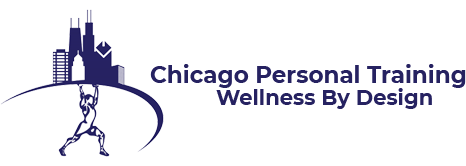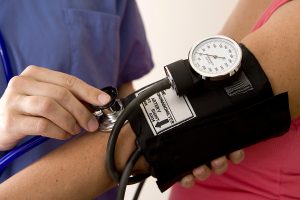
Blood Pressure and Exercise Guidelines
More than 75 million people have high blood pressure. Your blood pressure changes from day to day and even from moment to moment. It can be affected by stress, diet, exercise, hydration and medication. High blood pressure is also known as the “silent killer” because your body gives no warning signs that you have this condition.
Blood pressure is the force of the flowing blood against the walls of the arteries. It is measured at two phases of the health’s action. One is when the heart is contracting, this is called “systolic pressure.” The other is when the heart is relaxing between beats, this is called “diastolic pressure.”
The Lowdown on Blood Pressure
Blood pressure is measured in two numbers; for example, ‘140/90.’ The first number (140) is systolic pressure, the pressure when the heart contracts and pumps the blood through the body. The lower number (90) is diastolic pressure, the pressure between pumps, when the heart is resting 120/80 is considered normal. You may have high blood pressure (hypertension) if your blood pressure reading is equal to or greater than 140/90 for extended periods of time. Elevated blood pressure means your heart is working harder than normal, putting both your heart and arteries under a greater strain.
Only your doctor is qualified to diagnose whether you have high blood pressure or not
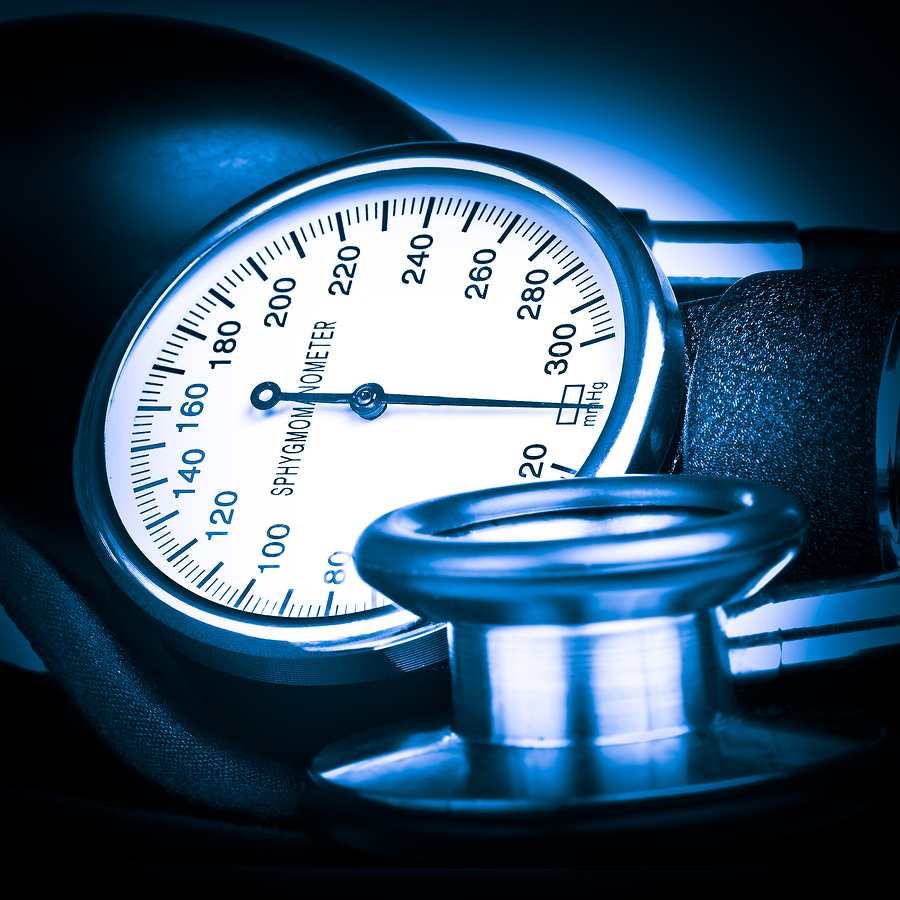
Keeping High Blood Pressure Under Control
If you are diagnosed with high blood pressure, it’s extremely important that you follow your doctor’s treatment guidelines to the letter. These guidelines may include keeping your diet low in fat, reducing your salt intake, quitting smoking, and limiting your alcohol consumption. In addition, you should exercise regularly, keep your weight within normal bounds, and learn to manage stress (instead of letting it manage you). Some recent research suggests that constant stress and pressure may predispose some men to continually elevated blood pressure later in life.
Checklist for high blood pressure control
Only your doctor can diagnose if you have high blood pressure
Have your blood pressure checked regularly. Your primary care physician can tell you how often.
Stop smoking
Avoid excessive salt intake
Eat more fresh fruits, vegetables, and foods high in fiber and less fat
Reduce stress on and off the job; master relaxation techniques
Be moderate in your drinking
Exercise regularly and keep your body weight within normal limits
If your doctor prescribes medication to lower your blood pressure, be sure to follow their directions exactly
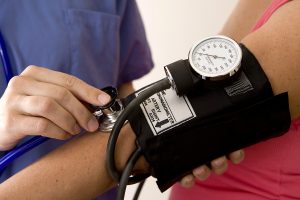
High Blood Pressure = 140/90 (or greater)
Take blood pressure before, during and after exercise
Do not exercise if you forgot to take your medication
Avoid holding your breath
Frequency of exercise instead of intensity of exercise
If you feel light headed or dizzy, stop exercising immediately and sit down
Don’t start any exercise program until you talk to your doctor. Exercises that may be good for one person may not be right for you.

Help reduce weight
Improve cardiovascular fitness
Reduce blood pressure readings
Make it fun! You will adhere to your program if you enjoy it

Slow gradual warm up with very little resistance to start
Increase cadence over pounds lifted or exercise intensity
Make sure you are well hydrated before starting your workout for the day
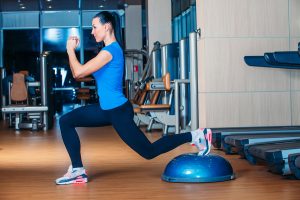
Do 30 minutes of aerobic activity 5 times a week
Strength training 2 times a week (circuit mode)
15-20 repetitions per set
Flexibility 3 times a week
